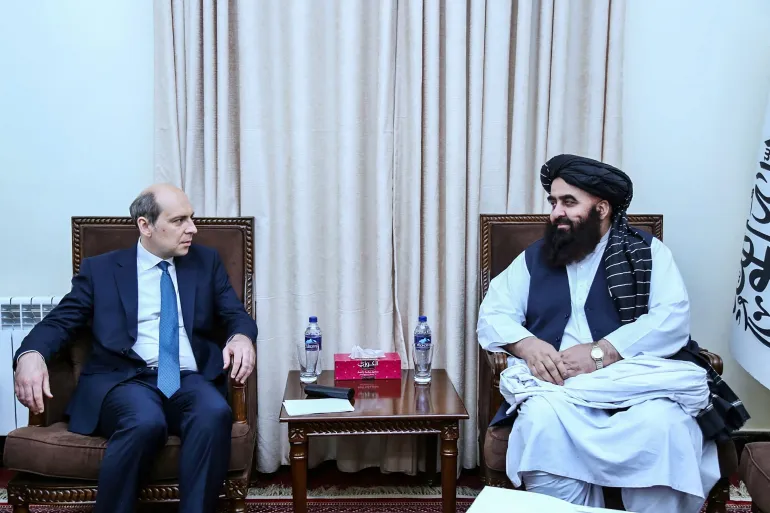In a move that marks a pivotal shift in global diplomacy, Russia has formally accepted the credentials of a new Afghan ambassador appointed by the Taliban, becoming the first country to officially recognize the government of the Islamic Emirate of Afghanistan. The landmark decision, announced Thursday by the Russian Ministry of Foreign Affairs, signals a strategic departure from the isolation the Taliban regime has faced since its return to power following the U.S. withdrawal in 2021.
“We believe that the act of official recognition of the government of the Islamic Emirate of Afghanistan will give impetus to the development of productive bilateral cooperation between our countries in various fields,” read a statement from the Russian foreign ministry, underlining Moscow’s intent to expand engagement with Kabul across economic, political, and security sectors.
Afghan Foreign Minister Amir Khan Muttaqi hailed the move as “brave” and “a model for others,” declaring, “Russia was ahead of everyone” in initiating the process of formal diplomatic recognition. The decision is likely to reverberate across global capitals, particularly in Washington, where the U.S. continues to enforce financial sanctions on Taliban leaders and has frozen billions of dollars in Afghanistan’s central bank assets.
Since the Taliban seized power in August 2021 amid the chaotic U.S. military exit, the group has remained diplomatically ostracized on the global stage. Despite de facto control, no country had officially recognized the Taliban-led administration—until now. While the United Nations still refers to the group as the “de facto authorities,” Russia’s recognition introduces a new phase in international dealings with Kabul.
Russia’s evolving approach to Afghanistan reflects a broader regional realignment. In 2003, Moscow had placed the Taliban on its list of terrorist organizations due to alleged support for separatist insurgents in the North Caucasus. However, by April 2025, Russia’s Supreme Court removed the Taliban from its official terrorist blacklist, reflecting a growing recognition of the group’s entrenched political control.
Over the past two years, Russia has steadily deepened ties with the Taliban regime. In 2022 and 2024, Taliban delegations attended Russia’s flagship Saint Petersburg Economic Forum, while high-level meetings with Russian Foreign Minister Sergey Lavrov took place in Moscow. President Vladimir Putin himself called the Taliban “allies in the fight against terrorism,” especially against Islamic State Khorasan Province (ISKP), the group believed to be responsible for attacks on Russian soil.
Moscow’s pivot toward Kabul is not solely political—it’s also economic. Russia has announced plans to use Afghanistan as a critical transit route for gas exports to Southeast Asia. In a symbolic gesture of commitment, Russia was the first country to open a business representative office in Kabul after the Taliban’s return to power, signaling strong interest in long-term economic cooperation.
For Russia, the recognition of the Taliban government is both strategic and pragmatic. The Kremlin views the Taliban as a stabilizing force in a region plagued by militancy, and as a potential bulwark against Western influence and radical Islamist offshoots like ISKP. Foreign Minister Lavrov reinforced this view in April, calling for a “pragmatic, not ideologised policy” towards the Taliban, asserting that “the new authorities in Kabul are a reality.”
This move is likely to spark renewed geopolitical competition in the region, especially among China, Iran, and Central Asian states, all of whom have maintained limited contact with the Taliban but stopped short of full recognition. It also places pressure on multilateral institutions like the UN, which must now grapple with the diplomatic precedent Russia has set.
While the implications of this recognition are yet to fully unfold, it is certain that Russia’s bold step will accelerate the Taliban’s quest for international legitimacy and could prompt a domino effect among regional powers looking to secure influence and resources in post-war Afghanistan.
As Russia throws open the doors of formal diplomacy, the question now is whether other nations will follow—or if Moscow has merely stepped into uncharted terrain alone. Either way, the rules of global engagement with Afghanistan have changed, and the world is watching closely.
















